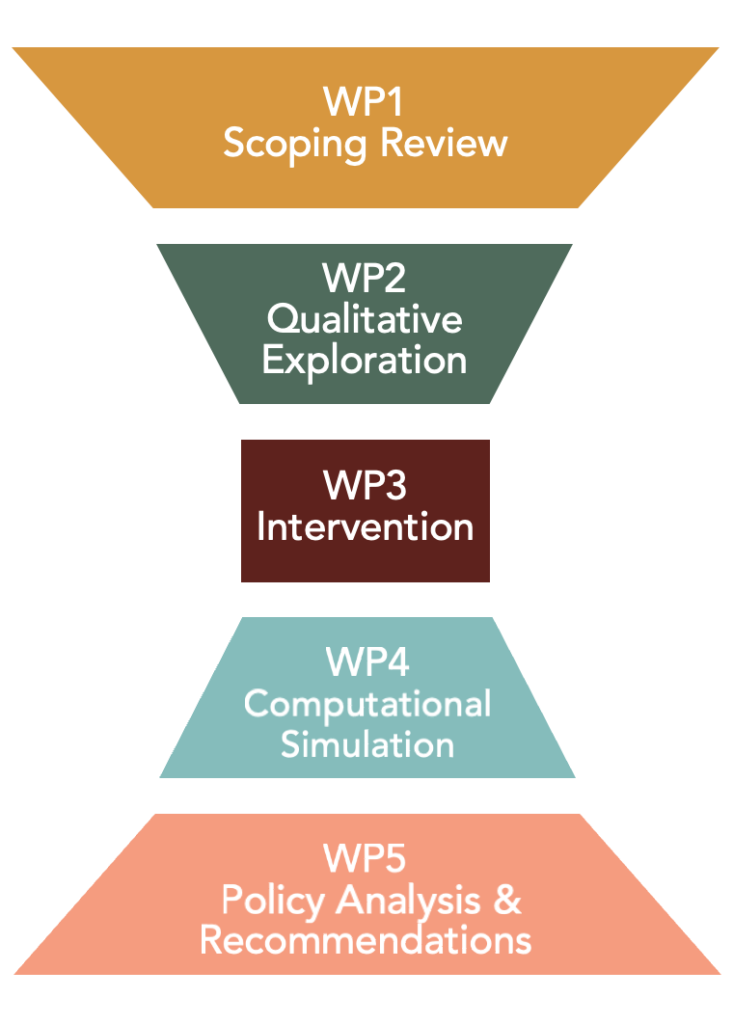PROMISE
PROMISE: Promoting Well-Being in Preteens, Adolescents, and Young Adults – Toward Improved Social Media Policies
The last decade has been hallmarked by an explosive rise in digital communication. Technologies such as social media present a profound challenge, especially for young people. In parallel, there is the concern of a growing mental health crisis in this population. This project undertakes a transformative mission to unravel, test and enhance policies that counter the detrimental impact of social media on young people, to safeguard and amplify their well-being in our increasingly digital world.
Employing a cutting-edge comparative approach, the research will encompass systematic literature synthesis, qualitative exploration, field experiments, and computational analysis. By differentiating between preteens (ages 10 to 12), adolescents (13-17), and young adults (18-25), the project will uniquely pinpoint effective policies tailored to each population.
In this project, we plan to:
1) provide an overview of policies that are being discussed or implemented;
2) discuss these policy proposals with young people directly;
3) test a promising policy change in a field experiment;
4) explore mechanisms underlying the impact of policy using computational approaches;
5) provide an overview with evidence-based recommendations.
This project thereby investigates the impact of social media on young people’s well-being through social, cultural, and policy lenses. A Young People Advisory Board and Co-Creation Workshop includes the voices of young people to shape outcomes and improve digital experiences. International and cultural comparisons enrich interventions, while evidence-based recommendations will guide policymakers globally. Dissemination includes social media, events, and NGO collaborations, ensuring wide outreach.
Our interdisciplinary approach draws upon the expertise of leading scholars from Communication, Psychology, Sociology, and Media Studies to systematically locate, test and evaluate policy approaches for social media, thereby contributing to the well- being of generations to come.
KEYWORDS:
well-being, mental health, social media, policy, young people, media effects, prevention.
- Project Leader: Tobias Dienlin, University of Vienna, Austria
- Veronika Kalmus, University of Tartu, Estonia
- Adrian Meier, Friedrich Alexander University Erlangen-Nuremberg (FAU), Germany
- Amy Orben, University of Cambridge, United Kingdom
- Charo Sadaba, University of Navarra, Spain
- Anna Sanmartín, Fad Juventud, Spain
- Anna-Kaisa Oidermaa, NGO Peaasjad, Estonia
- Cliff Manning, Parentzone, United Kingdom
- Emanuelle Machet, European Platform of Regulatory Authories, France
- Golli Marboe, VSUM (Verein für selbstbestimmten Umgang mit Medien), Austria
- Sandra Camós, Princess of Girona Foundation, Spain
- Dominic Difranzo, Lehigh University, United States
- Krisztina Rozgonyi, Austrian Acadamy of Science, Austria
- Patti Valkenburg, University of Amsterdam, Netherlands
- Philipp Masur, Vrije Universiteit Amsterdam, Netherlands
- Sonia Livingstone, London School of Economics, United Kingdom
